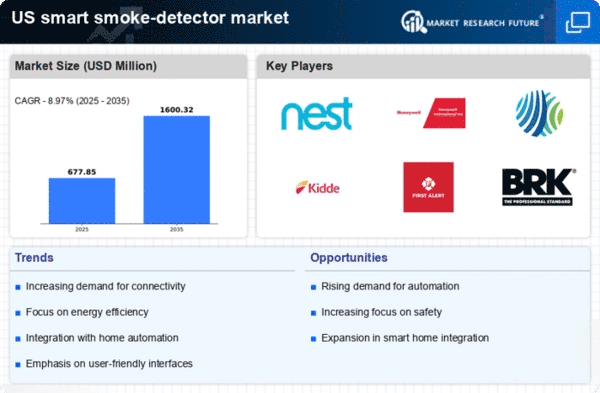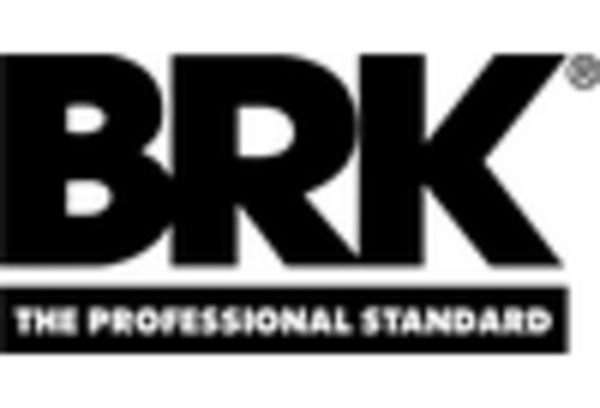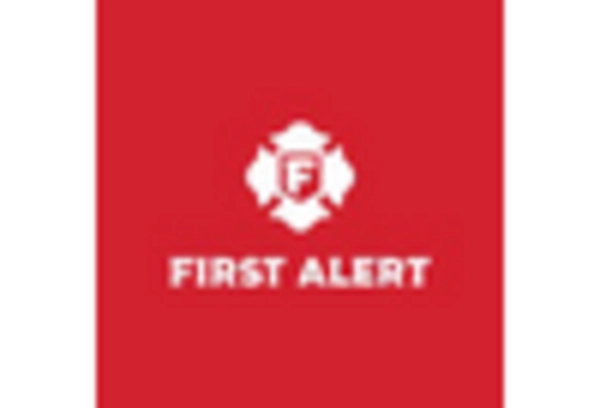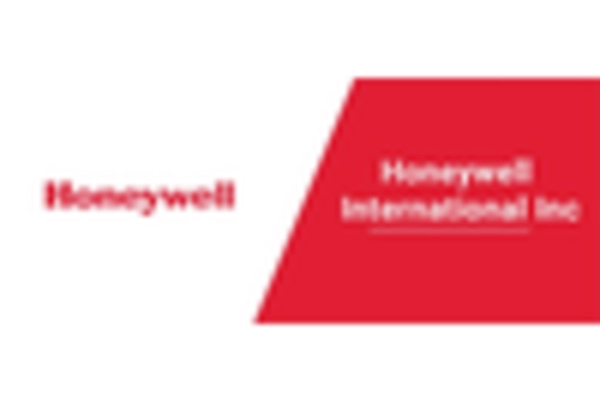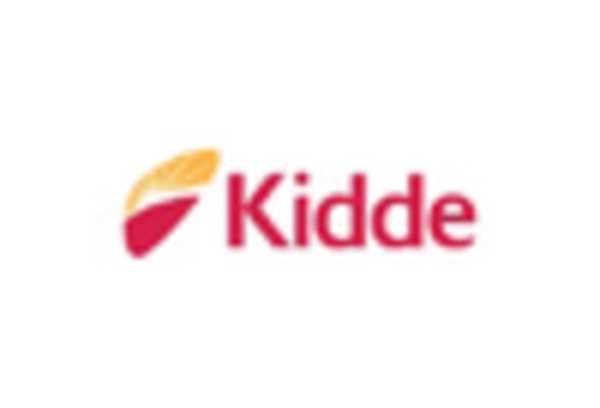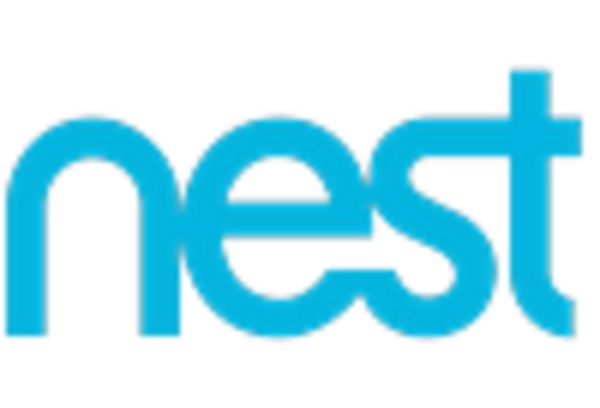Growing Awareness of Fire Safety
In recent years, there has been a notable increase in public awareness regarding fire safety, significantly impacting the smart smoke-detector market. Educational campaigns and community programs have highlighted the importance of having reliable smoke detection systems in homes and businesses. This heightened awareness has led to a greater demand for advanced smoke detectors that offer enhanced features, such as connectivity to smart home systems. According to recent surveys, approximately 70% of homeowners express a preference for smart smoke detectors over traditional models, indicating a shift in consumer behavior. This trend suggests that as awareness continues to grow, the smart smoke-detector market will likely expand, driven by the need for improved safety measures.
Regulatory Changes and Compliance
The smart smoke-detector market is influenced by evolving regulatory changes and compliance requirements. Recent updates to building codes and fire safety regulations in the US have mandated the installation of interconnected smoke detectors in residential properties. These regulations are designed to enhance safety and ensure that smoke detectors are equipped with the latest technology. As a result, manufacturers are compelled to innovate and produce devices that meet these stringent standards. The market is expected to see a boost in demand as homeowners and builders seek compliant solutions. This regulatory environment not only drives sales but also encourages the development of smarter, more efficient smoke detection technologies, thereby fostering growth in the smart smoke-detector market.
Technological Advancements in Detection
The smart smoke-detector market is experiencing a surge due to rapid technological advancements in detection capabilities. Innovations such as photoelectric sensors and dual-sensor technology enhance the accuracy of smoke detection, reducing false alarms. This is particularly relevant in residential settings, where false alarms can lead to user frustration. The integration of artificial intelligence (AI) and machine learning algorithms allows for predictive analytics, improving response times and overall safety. As a result, the market is projected to grow at a CAGR of approximately 10% over the next five years, driven by these technological improvements. Consumers are increasingly seeking devices that not only detect smoke but also provide real-time alerts via mobile applications, further propelling the smart smoke-detector market forward.
Rising Demand for Smart Home Integration
The increasing trend of smart home integration is a significant driver for the smart smoke-detector market. As consumers invest in smart home technologies, the demand for interconnected devices that communicate with each other is on the rise. Smart smoke detectors that can integrate with home automation systems provide users with enhanced control and monitoring capabilities. For instance, these devices can send alerts to smartphones and trigger other smart home features, such as turning on lights or unlocking doors during an emergency. Market Research Future indicates that the smart home market is projected to reach $174 billion by 2025, suggesting a robust growth trajectory for related products, including smart smoke detectors. This integration not only enhances user experience but also positions the smart smoke-detector market as a vital component of modern home safety.
Increased Investment in Home Safety Solutions
Investment in home safety solutions is a growing trend that positively impacts the smart smoke-detector market. Homeowners are increasingly prioritizing safety and security, leading to a surge in demand for advanced smoke detection systems. This trend is reflected in the rising sales figures, with the market expected to reach $1.5 billion by 2026. The willingness of consumers to invest in high-quality safety devices is driven by the desire for peace of mind and the protection of loved ones. Additionally, insurance companies are beginning to offer discounts for homes equipped with smart smoke detectors, further incentivizing homeowners to upgrade their systems. This financial motivation, combined with a heightened focus on safety, suggests that the smart smoke-detector market will continue to thrive in the coming years.

